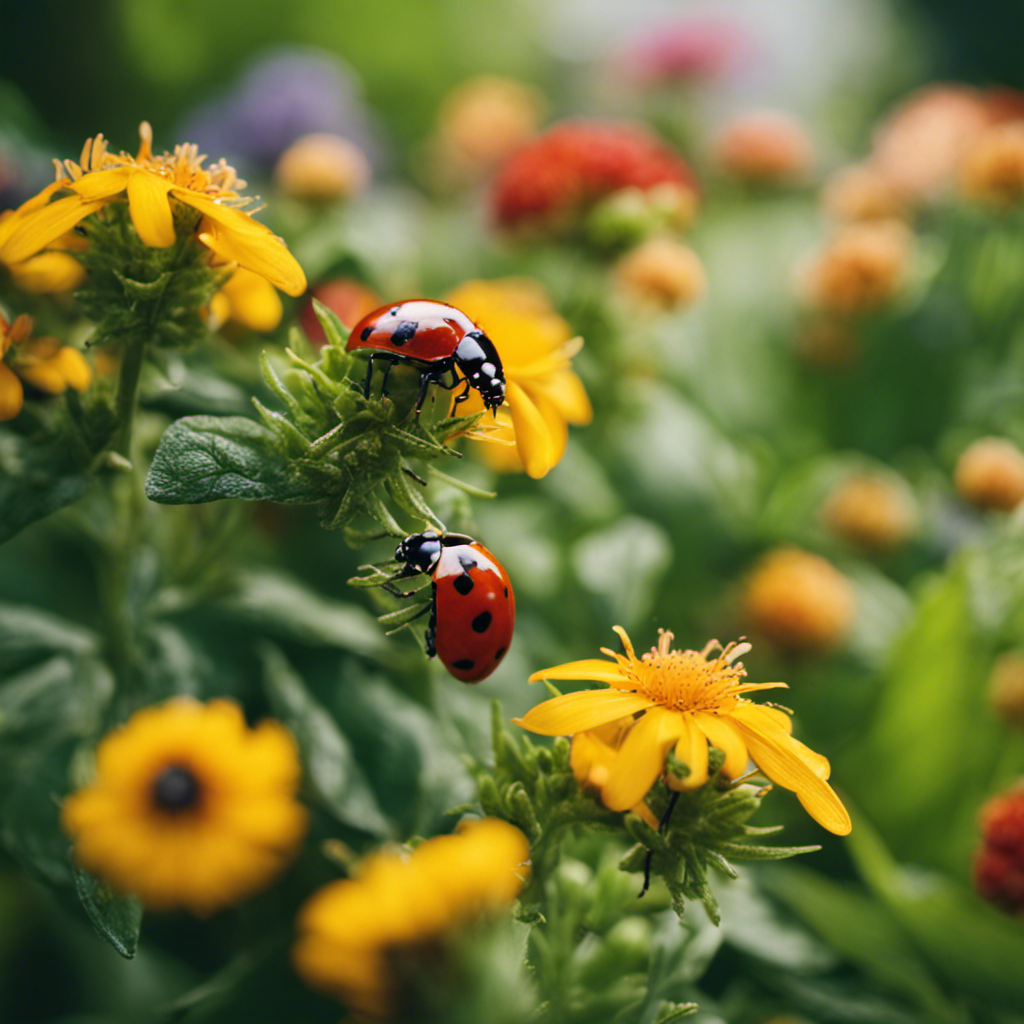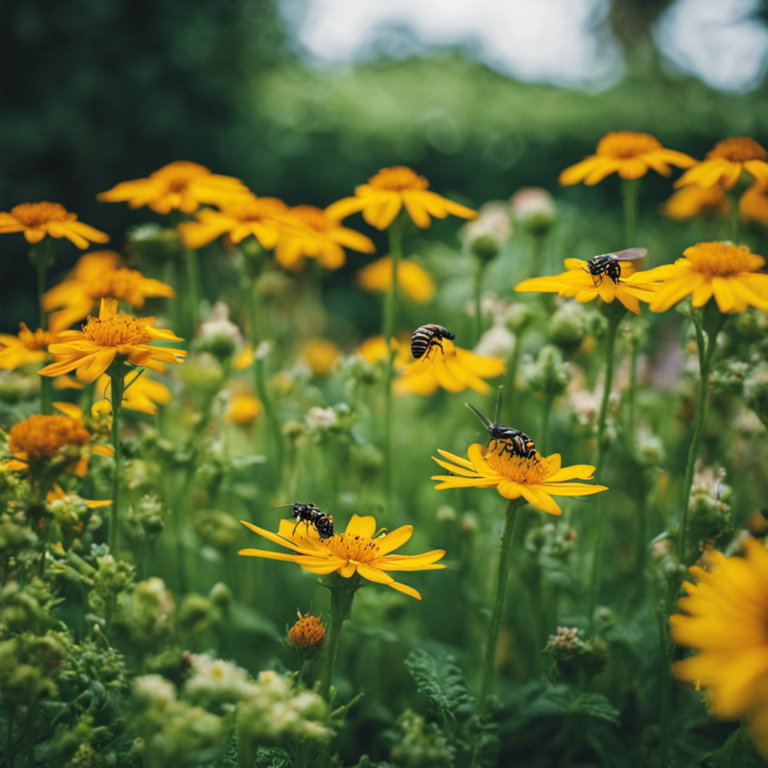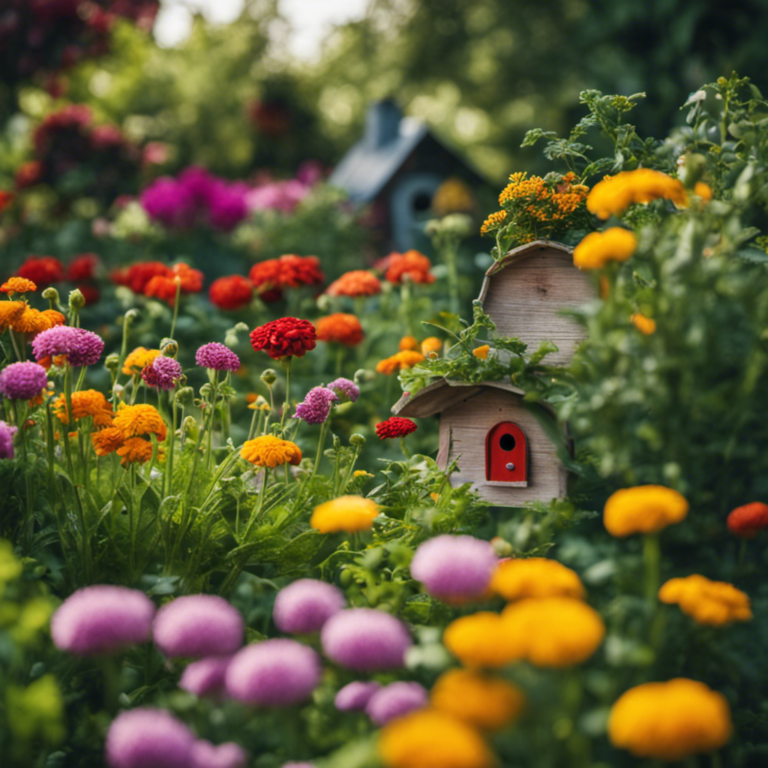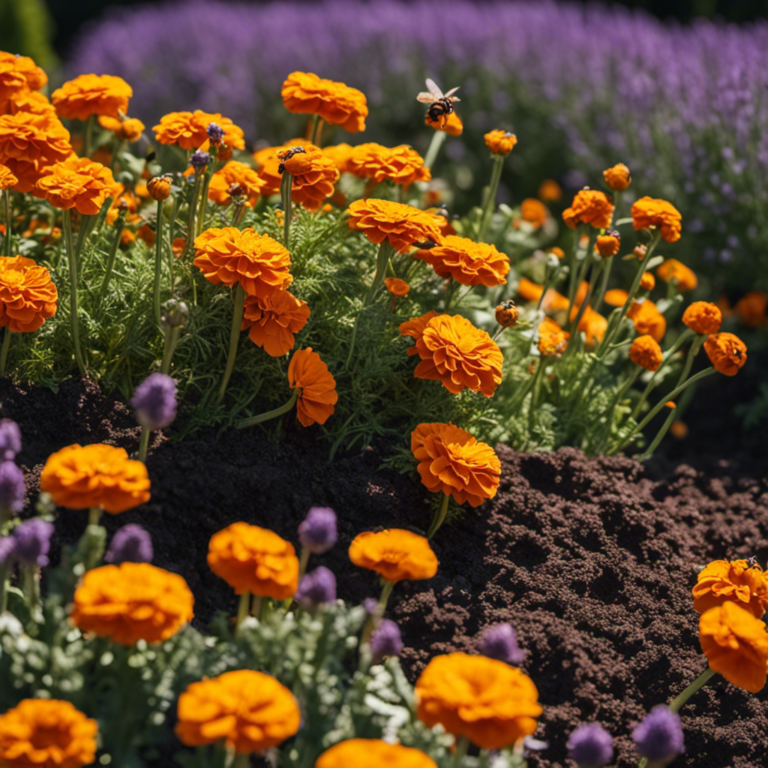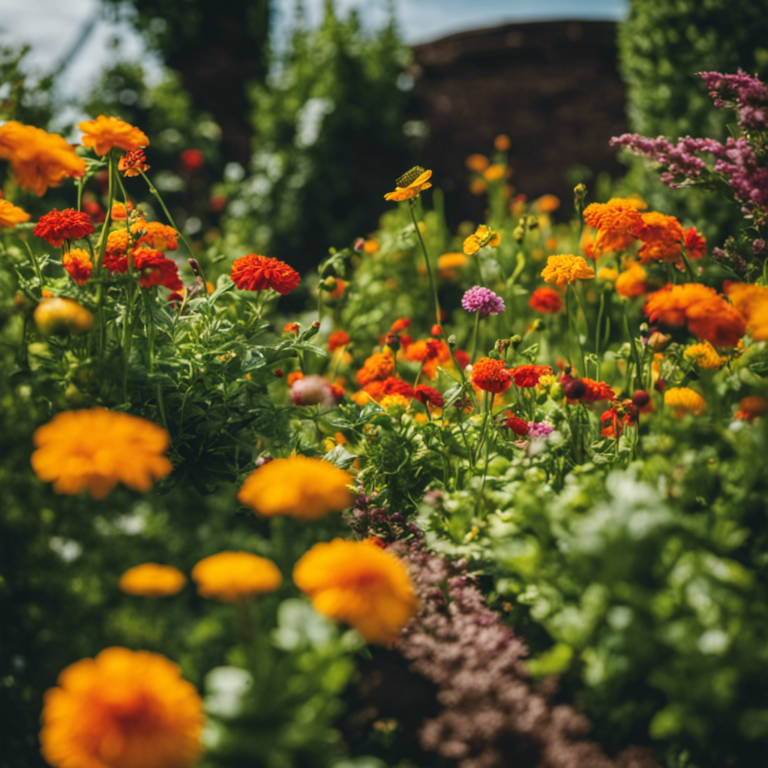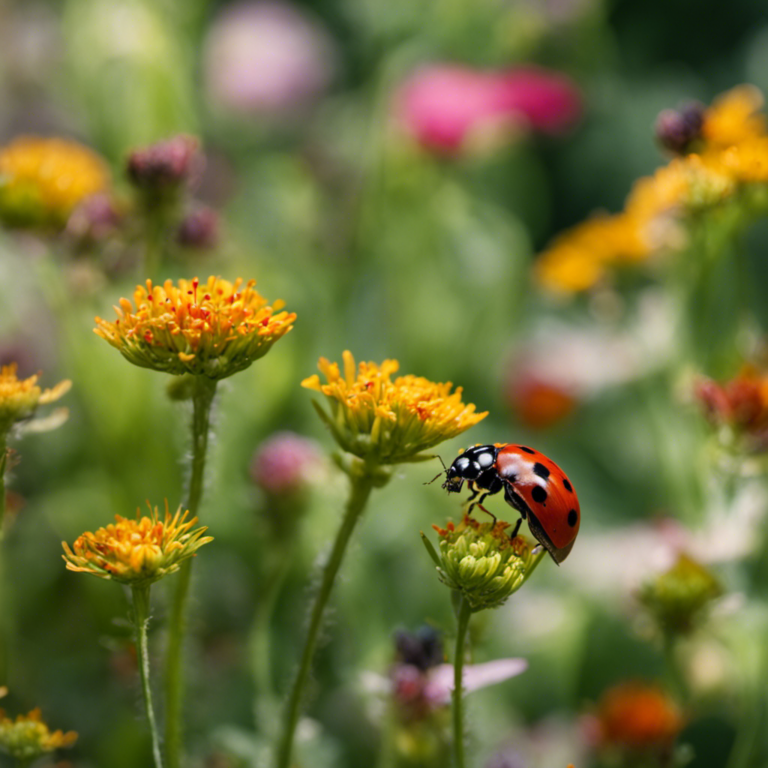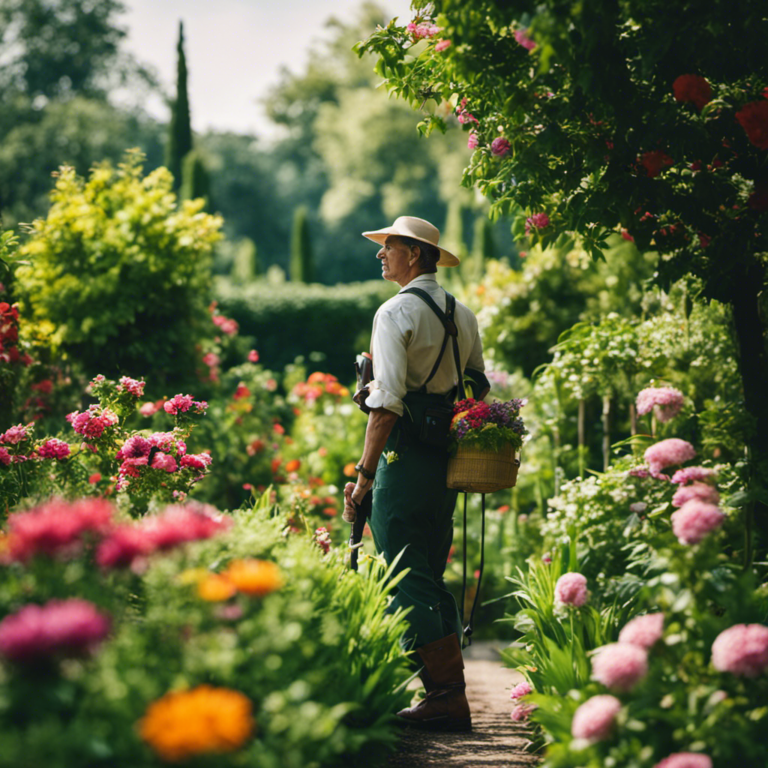Are pests causing problems in your garden? Don’t worry, as an environmentally-conscious gardener, we have you covered.
In this guide, we will show you how to deal with those bothersome creatures using eco-friendly pest control methods. Say goodbye to harmful chemicals and say hello to natural repellents, beneficial insects, and physical barriers.
By utilizing these environmentally-friendly techniques, you can protect your garden while also being kind to the planet. So grab your gardening gloves and get ready to create a pest-free haven.
Key Takeaways
Adopting eco-friendly pest control methods is essential for gardeners who prioritize both plant health and the environment. Instead of relying on harmful pesticides, there are several natural and environmentally-conscious approaches that can be used. These methods include using natural repellents, attracting beneficial insects, setting up physical barriers, and practicing companion planting. By implementing these strategies, gardeners can create a harmonious and thriving garden that supports the delicate balance of nature. Embracing these eco-friendly methods not only protects our plants but also contributes to a healthier environment.
Natural Repellents
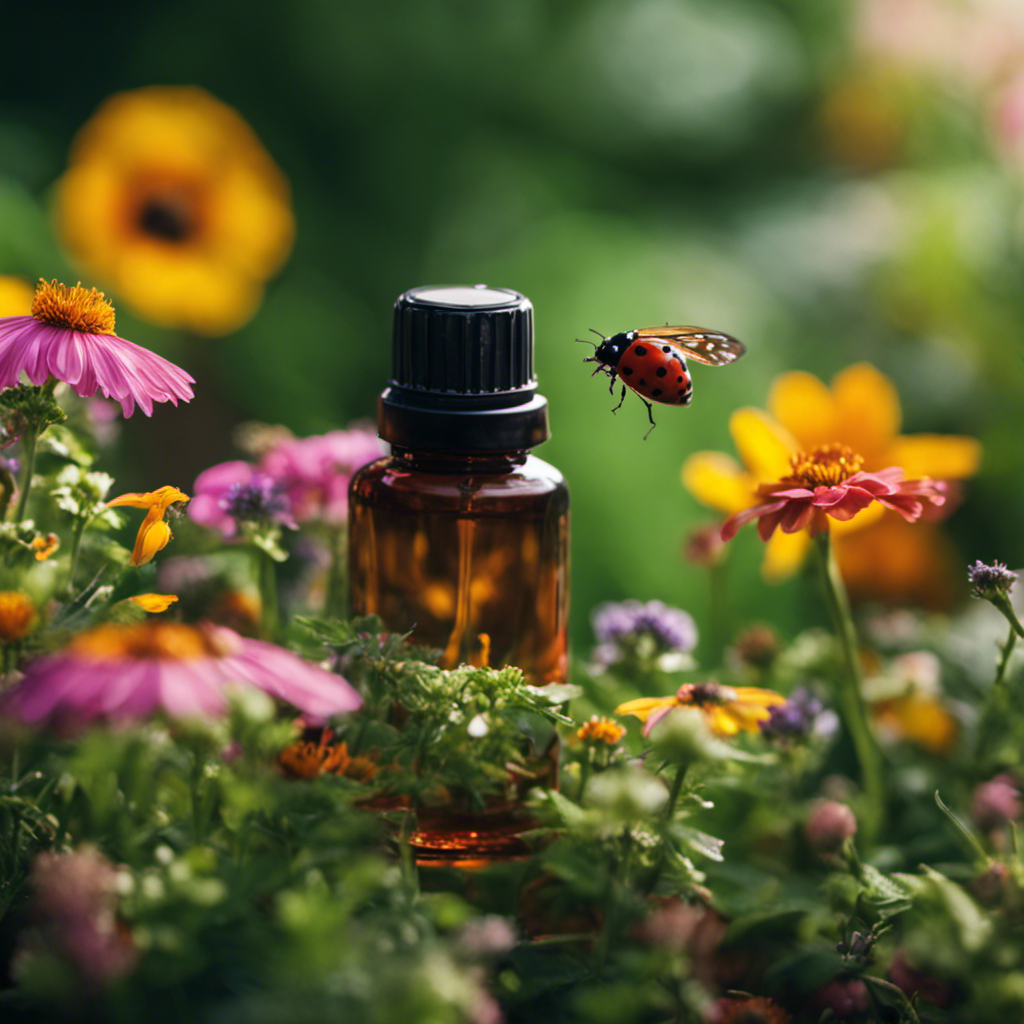
To effectively repel pests in an environmentally friendly way, use natural repellents.
When it comes to protecting your garden from unwanted critters, there are many green alternatives and homemade remedies that can do the job without harming the environment.
One option is to use essential oils, such as peppermint or eucalyptus, which have strong scents that pests dislike. Simply dilute a few drops in water and spray it around your plants.
Another effective method is to create physical barriers, like fencing or netting, to keep pests out.
You can also attract natural predators, like ladybugs or birds, by planting flowers and providing bird feeders.
Beneficial Insects
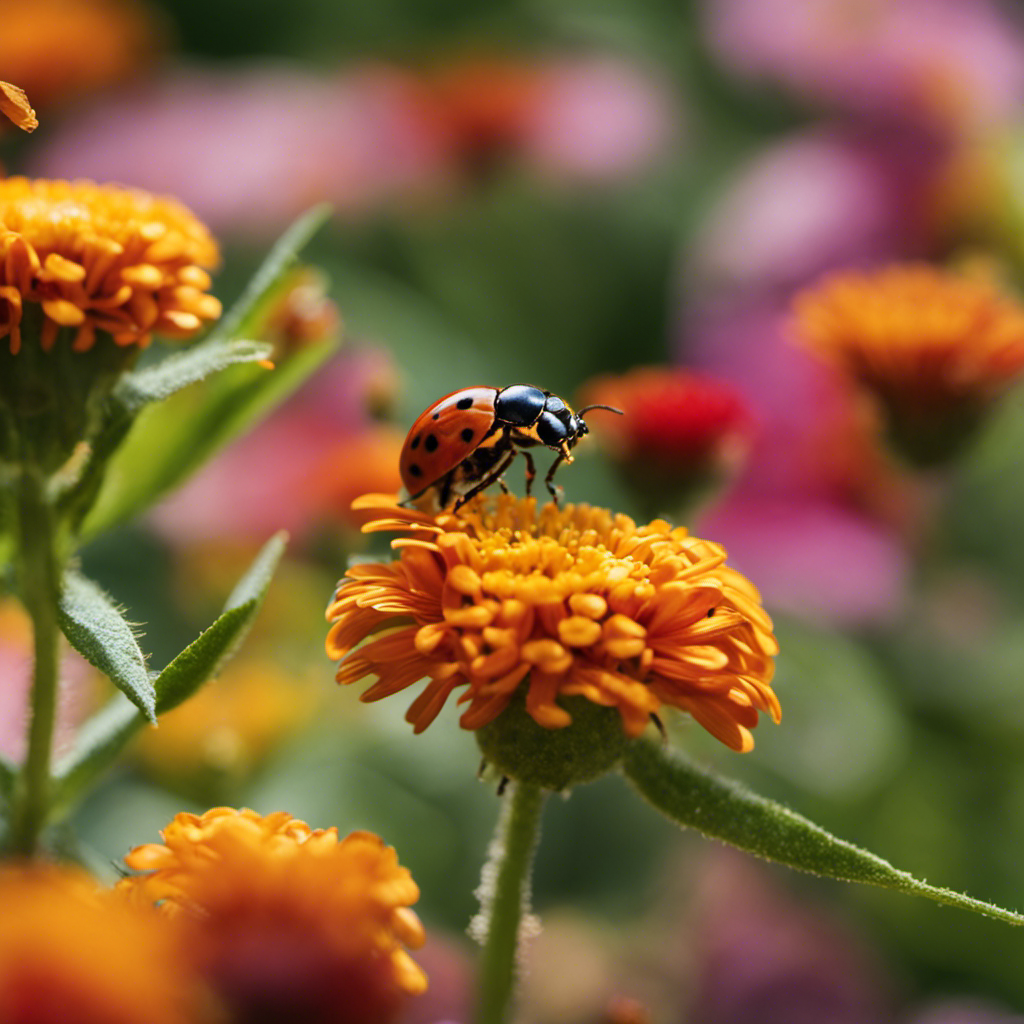
Enhance Your Garden’s Pest Control Efforts with Beneficial Insects
One effective way to improve your pest control efforts in your garden is by introducing beneficial insects. These insects play a crucial role in preventing pests and can greatly contribute to your integrated pest management plan. By attracting and supporting these helpful bugs, you can reduce the need for harmful pesticides and create a more balanced ecosystem in your garden.
Here is a table showcasing some common beneficial insects and the pests they prey on:
| Beneficial Insect | Preys On |
|---|---|
| Ladybugs | Aphids, mites |
| Lacewings | Aphids, mealybugs, whiteflies |
| Praying mantis | Beetles, caterpillars, grasshoppers |
To encourage beneficial insects to take up residence in your garden, provide them with a habitat that includes flowering plants, water sources, and shelter. It’s important to avoid using broad-spectrum pesticides that can harm both pests and beneficial insects. Instead, let nature take its course and allow these helpful bugs to do the pest control for you.
Physical Barriers
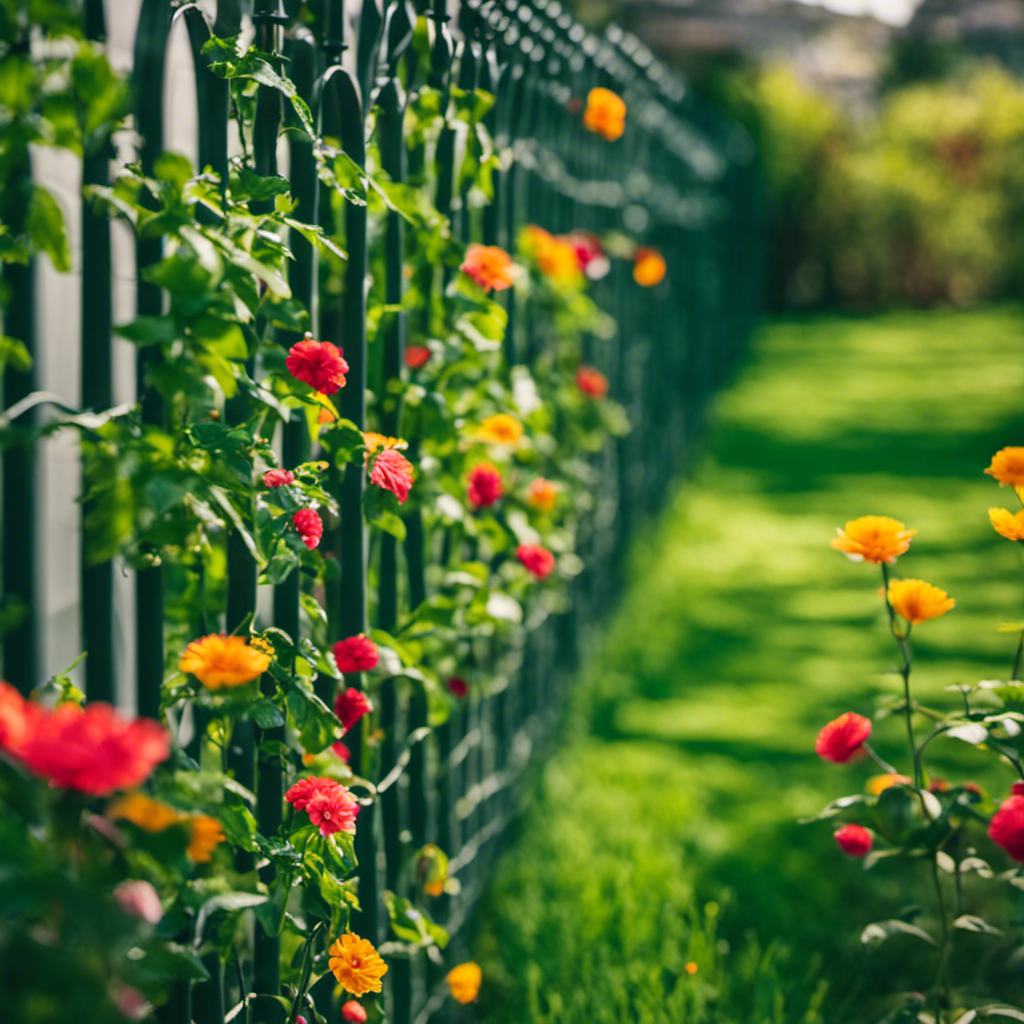
Improve your garden’s pest control efforts by using physical barriers to keep pests away from your plants.
Pest exclusion is an effective and eco-friendly technique that involves creating barriers to prevent pests from entering your garden. One commonly used method is installing a garden fence. This not only keeps out larger pests like rabbits, deer, and groundhogs, but also deters smaller pests like squirrels and raccoons from damaging your plants.
When choosing a garden fence, opt for durable and long-lasting materials that are resistant to pests, such as wire mesh or chicken wire. Make sure the fence is tall enough to discourage pests from jumping over it.
Companion Planting
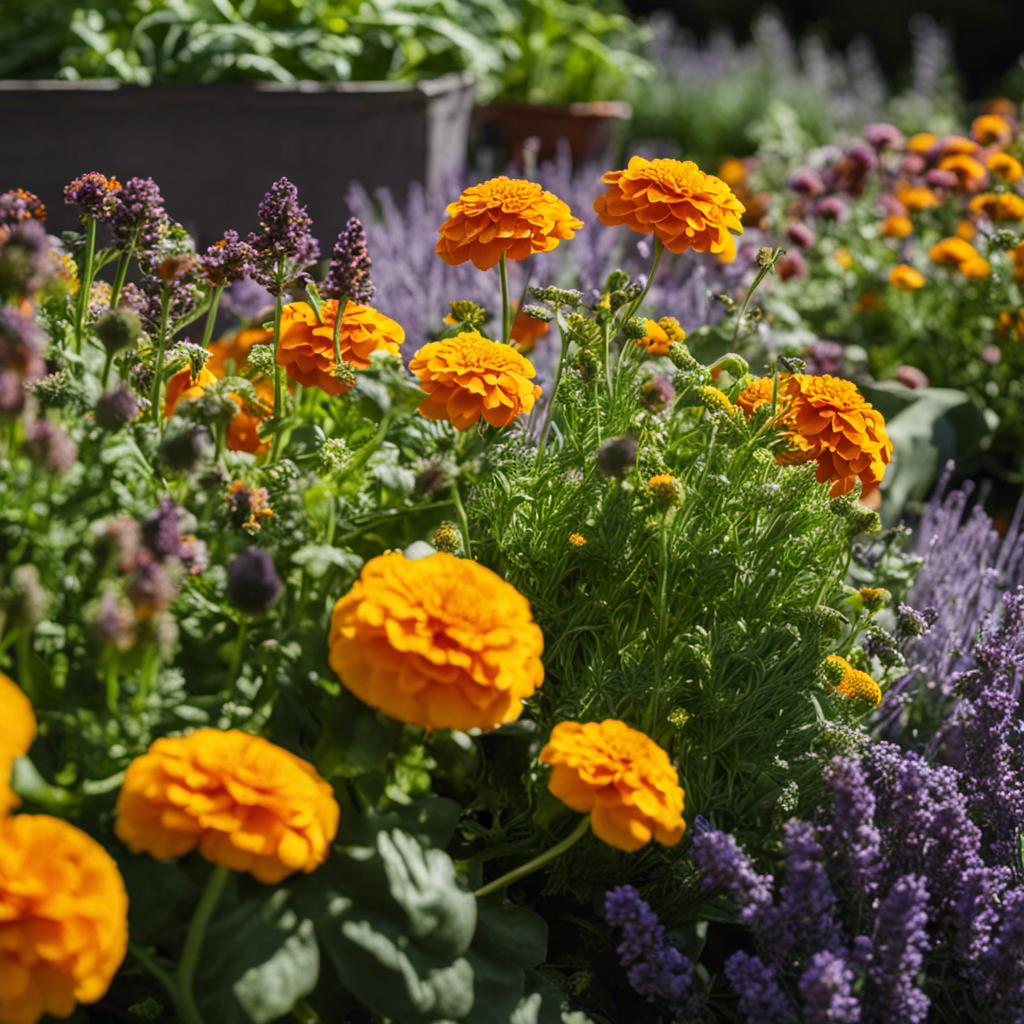
Companion Planting: A Natural Solution for Pest Control
One effective technique for eco-friendly pest control in your garden involves incorporating companion plants. Companion planting is the practice of growing certain plants together to benefit each other in various ways. By strategically planting companion plants, you can create a healthier and more pest-resistant garden without relying on harmful pesticides.
One way companion planting helps control pests is through natural pest control. Some plants emit strong scents that repel pests, acting as a natural deterrent. Additionally, certain companion plants attract beneficial insects that prey on garden pests, creating a balanced ecosystem in your garden.
Another benefit of companion planting is enhanced nutrient uptake. Certain companion plants have deep roots that help break up compacted soil, allowing nutrients to reach your main crops more effectively. This promotes healthier growth and increases the overall productivity of your garden.
Crop rotation is another advantage of companion planting. By planting different crops together, you disrupt pest life cycles and reduce the risk of disease buildup in the soil. This helps maintain the health of your plants and prevents the spread of pests and diseases.
Incorporating companion plants also enriches the soil. For example, legumes have the ability to fix nitrogen in the soil, which benefits other plants by providing them with a nutrient-rich environment. This natural soil enrichment reduces the need for synthetic fertilizers and promotes sustainable gardening practices.
Organic Pesticides
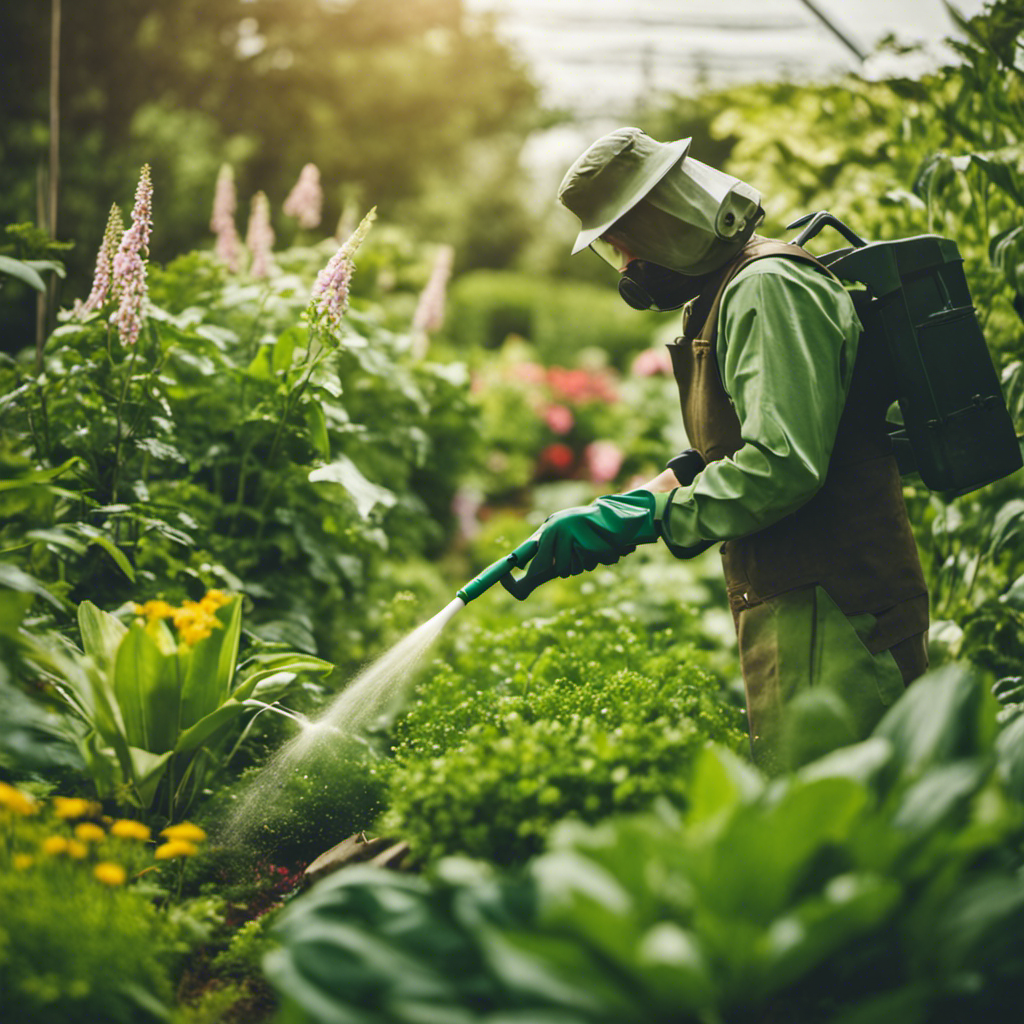
To support your eco-friendly pest control efforts, consider using organic pesticides in your gardening routine.
Organic pesticides are environmentally friendly alternatives to chemical-based ones. They’re made from natural ingredients and don’t harm beneficial insects or contaminate the soil and water.
These pesticides repel or kill pests, prevent infestations, and protect your plants. You can find a variety of organic pesticides in stores, or you can make your own homemade remedies using ingredients like neem oil, garlic, or soap spray.
These homemade remedies are cost-effective and easy to make. Remember to follow the instructions and apply the pesticides sparingly to minimize any potential negative impacts on the environment.
Conclusion
By adopting green pest control methods, eco-forward gardeners can protect their plants in a practical and environmentally-conscious way. Instead of relying on harmful pesticides, there are several natural and eco-friendly approaches that can be used.
These include using natural repellents, attracting beneficial insects, setting up physical barriers, and practicing companion planting. By implementing these strategies, gardeners can create a harmonious and thriving garden that supports the delicate balance of nature.
It’s important to prioritize the health of our plants and the environment by embracing these eco-friendly methods.
